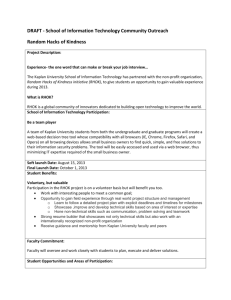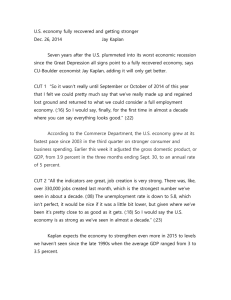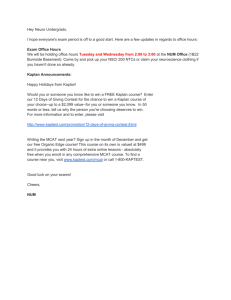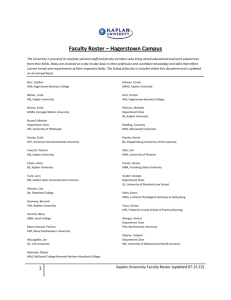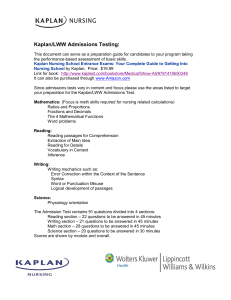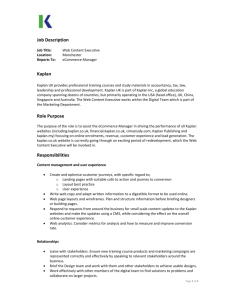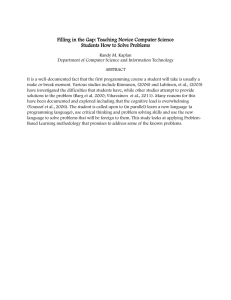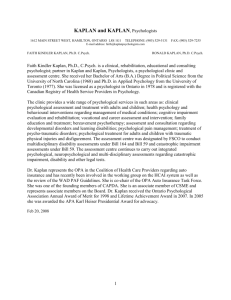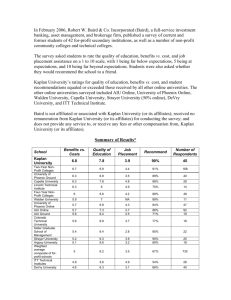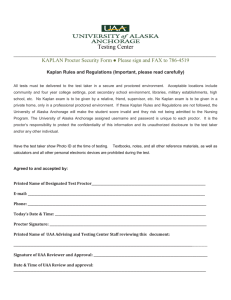Enterprise Risk Management
advertisement
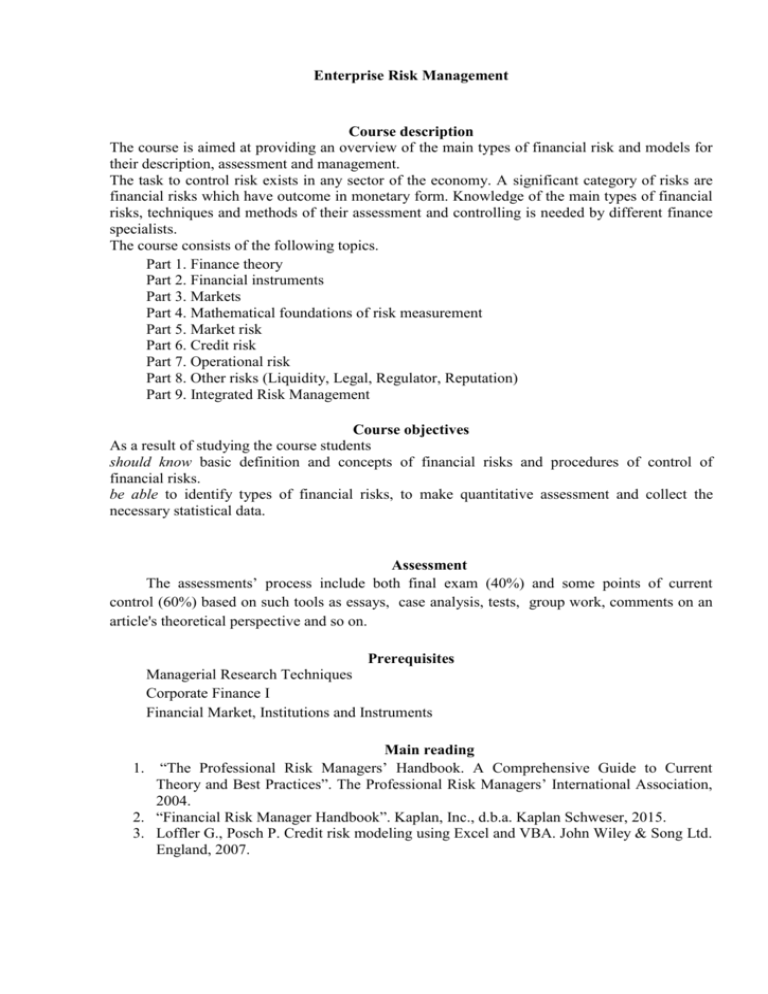
Enterprise Risk Management Course description The course is aimed at providing an overview of the main types of financial risk and models for their description, assessment and management. The task to control risk exists in any sector of the economy. A significant category of risks are financial risks which have outcome in monetary form. Knowledge of the main types of financial risks, techniques and methods of their assessment and controlling is needed by different finance specialists. The course consists of the following topics. Part 1. Finance theory Part 2. Financial instruments Part 3. Markets Part 4. Mathematical foundations of risk measurement Part 5. Market risk Part 6. Credit risk Part 7. Operational risk Part 8. Other risks (Liquidity, Legal, Regulator, Reputation) Part 9. Integrated Risk Management Course objectives As a result of studying the course students should know basic definition and concepts of financial risks and procedures of control of financial risks. be able to identify types of financial risks, to make quantitative assessment and collect the necessary statistical data. Assessment The assessments’ process include both final exam (40%) and some points of current control (60%) based on such tools as essays, case analysis, tests, group work, comments on an article's theoretical perspective and so on. Prerequisites Managerial Research Techniques Corporate Finance I Financial Market, Institutions and Instruments Main reading 1. “The Professional Risk Managers’ Handbook. A Comprehensive Guide to Current Theory and Best Practices”. The Professional Risk Managers’ International Association, 2004. 2. “Financial Risk Manager Handbook”. Kaplan, Inc., d.b.a. Kaplan Schweser, 2015. 3. Loffler G., Posch P. Credit risk modeling using Excel and VBA. John Wiley & Song Ltd. England, 2007.






